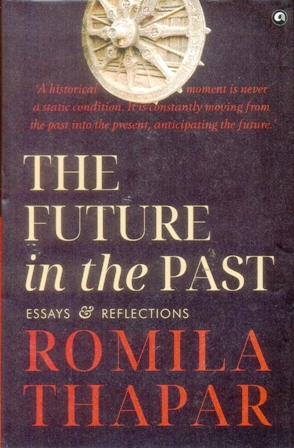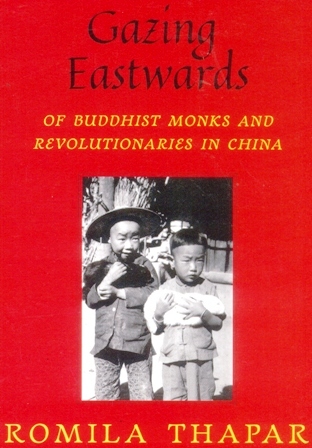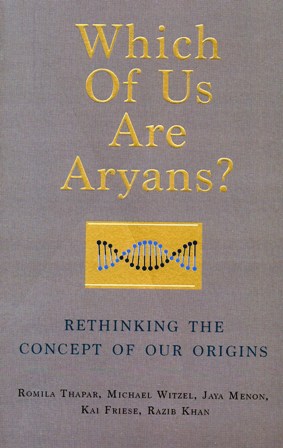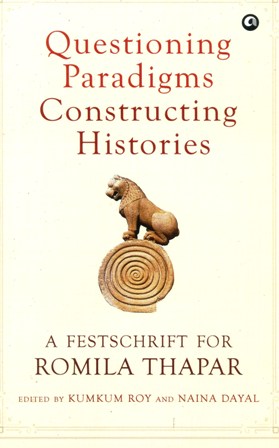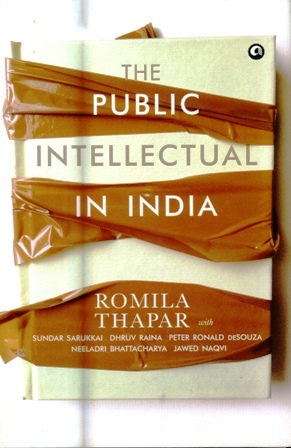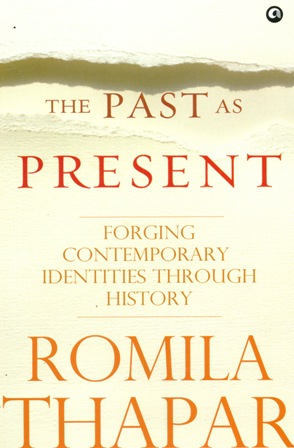-
The Future In The Past
The Future in the Past brings together essays by Romila Thapar on issues and ideas that have preoccupied her throughout her career. These are subjects that surfaced frequently in discussions over the last six decades as they do even more so at present. Among them are the use and misuse of history, the myths surrounding the coming of the Aryans, religious fundamentalism in the study of society, the overt and the insidious attempts by right-wing elements to pervert Indian culture, variants of the Ramayana, the importance of museums, why dissent is important to democracy, the role of the public intellectual, and much more. Central to the arguments in these essays (versions of which first appeared in Seminar magazine) is an analysis of how the past permeates the present and influences the future.
-
Gazing Eastwards Of Buddhist Monks And Revolutiona
Gazing Eastwards is a lively and arresting account of Romila Thapar’s first visit to China in 1957. She went as a research assistant to the Sri Lankan art historian Anil de Silva, and worked on two major Buddhist sites in Maijishan and Dunhuang. It was a period of deceptive calm in the country, just prior to traumatic events such as the Cultural Revolution and the Great Leap Forward that churned and transformed Chinese society. Although China was changing with Mao’s rise to power, much of the old ways remained. This being her first visit to East Asia, the author was greatly intrigued by the country, its culture, and its people during the months she spent there. Besides her work on the Buddhist sites that brought her to China, the author was able to travel to the historically important cities of Beijing, Xi’an, Nanking, and Shanghai, as also some small cities and villages of the Chinese hinterland. She travelled by plane, train, truck, and automobile. Her curiosity led her to many meetings with a variety of people, great and small, as well as forays into the country’s art, music, culture, and religion. She ate the most unusual and delicious Chinese meals, and endorsed the claim that Chinese food is one of the world’s great cuisines. She delved into Chinese history, learnt how to play the erhu, heard the operas of diverse regions, shook hands with Chairman Mao, admired the grace and beauty of Chinese women, and tried to experience as much of Chinese society as she could. Her observations of her time in China provide the reader with a profound, funny, original, and constantly insightful look at one of the world’s oldest and most complex countries.
-
Which Of Us Are Aryans
Romila Thapar is Emeritus Professor of History at the Jawaharlal Nehru University, New Delhi; Michael Witzel is the Wales Professor of Sanskrit at Harvard University and editor of the Harvard Oriental series; Jaya Menon is Head of the Department of History at Shiv Nadar University; Kai Friese is a managing editor at India Today; Razib Khan is a geneticist who writes extensively on a broad range of topics. He has worked within the personal genomics industry for the past five years, and consults for PBS’s Finding Your Roots.
-
Questioning Paradigms Constructing Histories
KUMKUM ROY teaches ancient Indian social history at the Centre for Historical Studies, Jawaharlal Nehru University. Her publications include The Emergence of Monarchy in North India (1994) and The Power of Gender and the Gender of Power (2010). She is interested in gender, political institutions, histories of marginalized groups as well as in pedagogical issues pertaining to the teaching of history, and has worked with teams involved in the production of school textbooks at the state and national level. Naina Dayal teaches history at St. Stephen’s College, University of Delhi. Her research interests include the period c.320 bce–300 ce, during which the Sanskrit Ramayana and Mahabharata took shape.
-
The Public Intellectual in India
The public intellectual in India is an endangered species. Should we care? In this well-argued book, Romila Thapar and others tell us why we should. Thapar begins by defining the critical role that such individuals play in our societies today. Collectively, they are the objective, fearless, constructive voice that asks the awkward questions when government, industry, religious leaders and other bulwarks of society stray from their roles of ensuring the proper functioning of a country whose hallmarks are (or should be) social and economic equality, justice for all, and the liberty to say, think and profess the fundamental requirements of good citizenship. Through the lens of history, philosophy, science, and politics, she shows us the key role enlightened thinkers and activists have played in India, Europe and elsewhere. Today, as the liberal space in India is threatened by religious fundamentalism, big business, and, worryingly, a government that appears to be tacitly (and sometimes overtly) encouraging the attack on freedom of expression, secular values and rational readings of history, there could be no book as timely as this one. With contributions from writers and scholars in the fields of philosophy, science, history, journalism and social activism, The Public Intellectual in India shows us why it is important to have independent voices to protect the underprivileged, ensure human rights and social justice, and watch over the smooth functioning of our liberal, secular democracy.

